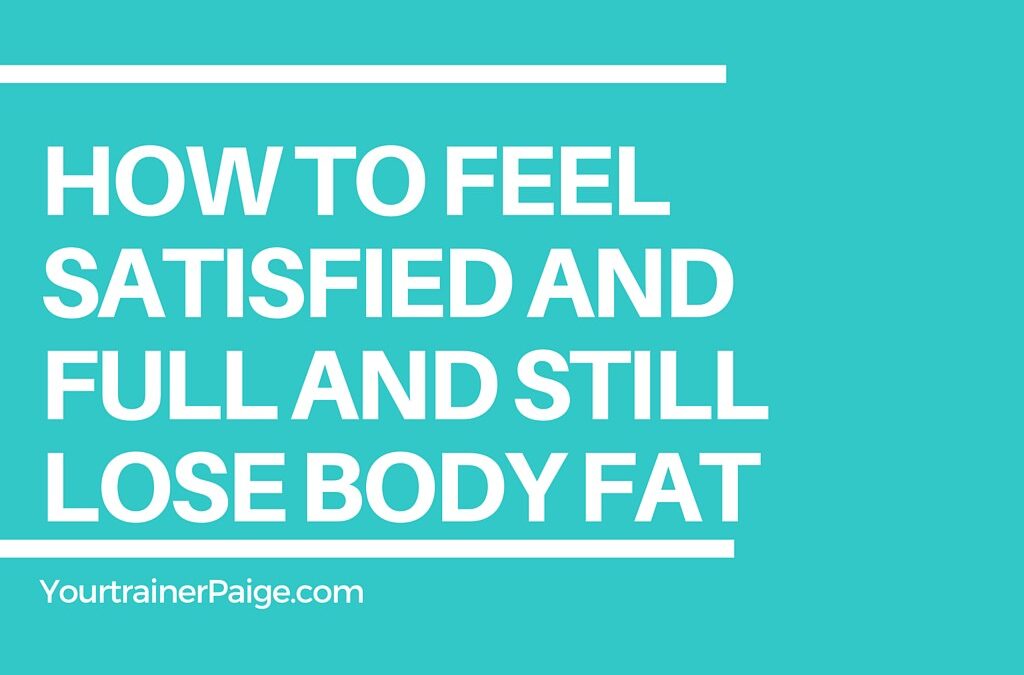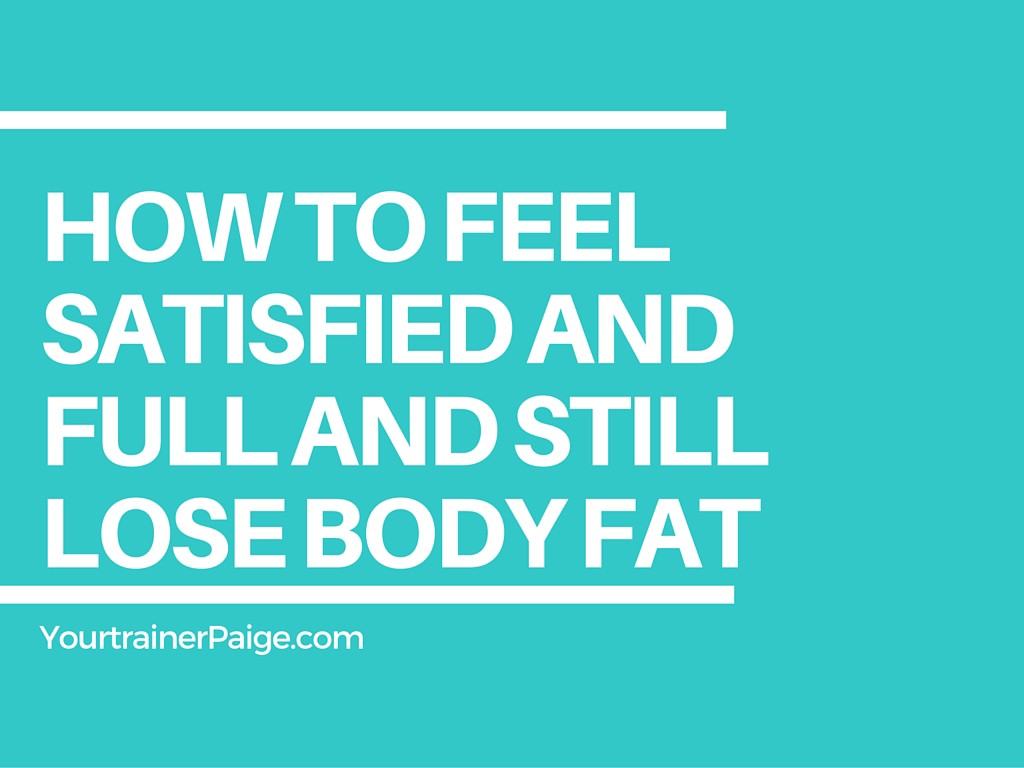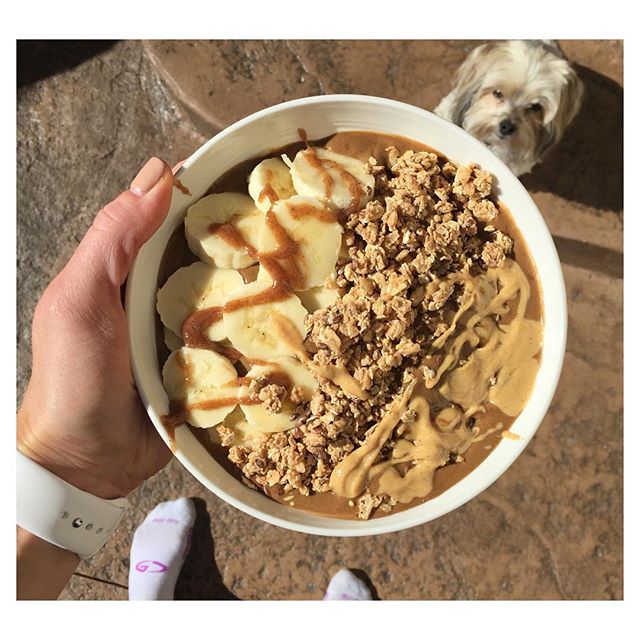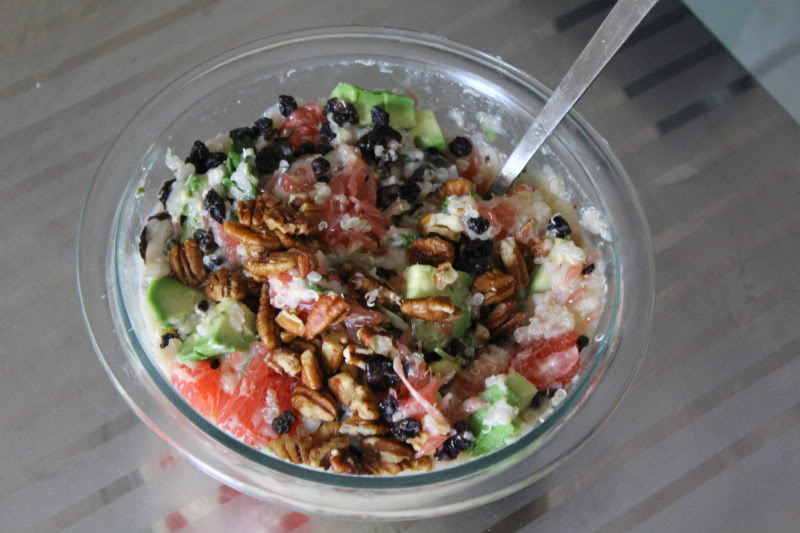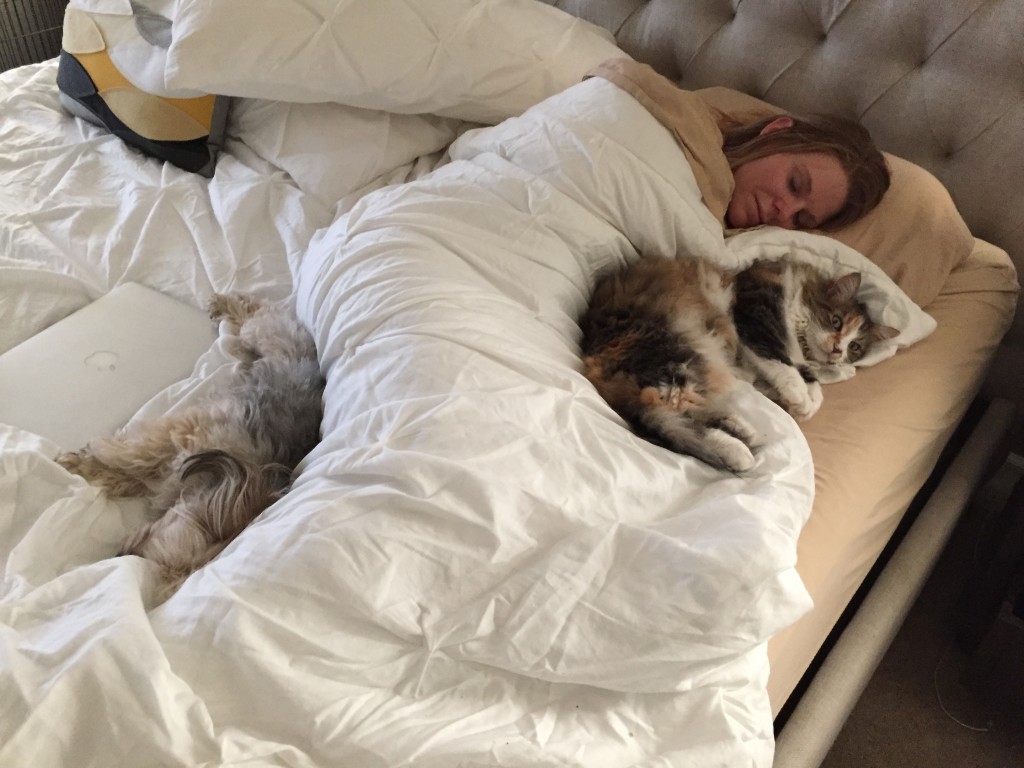Some thoughts and discussions from me.
If your experience with “diets” tells you that hunger and deprivation automatically goes hand in hand with seeing progress and results, I’m here to tell you that:
a) I feel for you – and I’ve worked with many women who have been there, too
and
b) it’s not true!
One of the coolest things about finding a nutrition plan that actually works for you is that it’s fairly seamless.
This means that even while you’re seeing progress and results each week, you don’t feel constantly hungry, deprived, and restricted. Actually, those are three words that I aim to never hear any of my clients utter – and if they do, we modify the plan – stat.
Today, I want to share with you the three key variables I work on with my clients who want to feel full and satisfied (i.e. all of them) while losing body fat.
As I mentioned in this post, a program that you have to white knuckle your way through is a program that won’t get finished – or one that won’t produce results that stick.
After all, if my plans took away from my clients’ lives rather than enhanced them, I wouldn’t be able to sleep well at night. Plus, I consider my clients’ success (and testimonials) a big contributor to my salary!
In order to combat feelings of hanger and wanna-give-ups, I do a few things to ensure satiety and satisfaction in my clients’ meal plans.
How to Feel Satisfied and Full and Still Lose Body Fat
Without getting into the science-y jargon of the dozens and dozens of hormones that contribute to the feeling of fullness, know that there are many receptors that communicate back and forth between the stomach and the brain that tell your appetite to register as “full.”
In order to receive these signals and communicate them effectively, a few things need to take place:
1. Volume.
One way your brain recognizes fullness is the nerves in the stomach registering that it’s well, it’s getting filled up – literally! I recommend all of my clients to eat 1-2 servings of veggies with each meal, not only to flood their body with nutrients, but also to increase feels of satiety.
When I’m working with a client who has had issues with fullness and feelings of deprivation when trying to lose body fat in the past, we make one or two very effective changes to their meals to easily make them more voluminous.
Of course, if this were the only way our brain registered fullness, we could just eat low calorie foods and be full. But eating a a mount of lettuce might make you feel full for a little bit, but soon after that you feel hungry again. Or maybe, you feel full after eating a bunch of lettuce, but you don’t necessarily feel satisfied.
That’s because in order to feel satiated, you also need…
2. Nutrients.
After a meal, your brain also needs to sense that you’ve eaten nutrients (via fatty acids, glucose, amino acids (fat, carbs, protein)) and those nutrients have entered the bloodstream. When it senses this, the feeling of fullness is achieved.
Now, some people feel more full when eating carbohydrate-rich meals, and some do better at fat loss and feel more satiated with more fat at meals.
That’s why in my consultations with clients, we talk in-depth about what you eat, and how you feel after certain meals. From this information, we’re able to ascertain the best macronutrient make up of your meal, depending on a couple other variables in your lifestyle.
That said, studies show that dietary fat increases satiety more than the same amount of carbohydrate in a meal, and protein promotes satiety than the same amount of both fat and carbohydrates in a meal.
3. Sleep
And then there’s one other very important part to this equation: adequate sleep. I try to get all of my clients up to 7-9 hours a night because it’s important for their workout recovery but also because when you’re sleep deprived, these hunger/fullness signals get all outta whack.
Sleep deprivation is actually linked to a decreased amount of one of the main satiety hormones (leptin,) increased hunger hormone (grehlin,) AND increased body fat.
Anecdotally, there’s absolutely NO mistaking that I crave carbs and sugar intensely after more than two nights in a row of poor sleep. (Unfortunately, I haven’t gotten good sleep in the past four nights. Coincidentally, the bag of Christmas cookies ((Christmas cookies!)) have made their way out from the bottom of the freezer.)
Listen, I’d hammer in the importance of sleep if only for the sake of how dang crucial it is for cell repair and workout recovery. But it also is directly linked to improved nutrition.
Other factors we look at include: getting enough protein, the right amount of dietary fat and carbohydrates, and eating in a way that supports blood sugar stability.
I have a couple spots left open for my next online boot camp that starts February 22nd! In this program, you’ll take a big focus on nutrition, prioritizing our nutrition changes and strategies with equal importance as the workouts. If you have goals to decrease body fat, see muscle definition, and build habits that stick, you can sign up HERE today, or fill out the form below, and I’ll send you more information to see if you’d be a good fit.
[gravityform id=”3″ title=”true” description=”true”]

